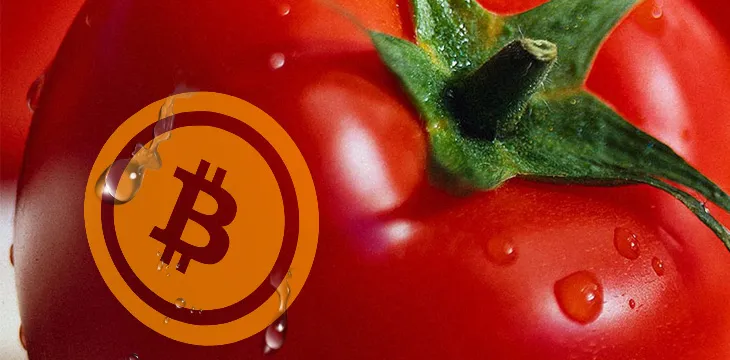|
Getting your Trinity Audio player ready...
|
Nakamotox founder Kamil Brejcha says the project has already produced five acres worth of tomatoes.
Undesirable environmental effects are some of the arguments cryptocurrency opponents use as an objection to the blockchain revolution. Throughout the years, some have been debunking such arguments, saying blockchain mining consumes less energy than all the systems and offices required for traditional banking to function. Some have even developed infrastructure to enable cryptocurrency mining to run on renewable energy, and some even use blockchain technology to make energy distribution supplies more efficient, proving ultimately that blockchain is not a threat but an ally to clean energy.
Kamil Brejcha, founder of Czech-based cryptocurrency trading platform Nakamotox, is taking this benefit a few steps further. Brejcha says they are launching a start-up that recycles heat generated by cryptocurrency mining processors to help grow crops in greenhouses. Dubbed “Cryptomatoes,” the project has actually been quietly on a testing phase, and it has delivered a five-acre greenhouse-worth of tomatoes, Brejcha says.
Who would imagine that mining cryptocurrencies and agriculture can work together? The first batch of cryptomatoes is ready to be harvested. We are using the excess heat for the tomato greenhouse and it is working:-) pic.twitter.com/U7qqKTshqO
— Kamil Brejcha (@KamilBrejcha) March 10, 2018
As a supporting infrastructure, Brejcha says they are developing the “Cointainer” which would deliver the heat from the processors to the greenhouses.
We have developed something called "Cointainer" which is being placed in the basement and the heat is blown into the greenhouses. More details will be revealed soon. pic.twitter.com/VILRdK3I6k
— Kamil Brejcha (@KamilBrejcha) March 10, 2018
Brejcha says they initially considered growing medical marijuana, but opted for tomatoes and other vegetables to avoid legal problems. “Unfortunately, because of local strict rules, we were unable to obtain a license for medical (marijuana) growing so we had to choose tomatoes and other vegetables instead,” he said.
The project is indeed interesting, although questions on scalability and large scale feasibility will have to wait to be answered. “You will be able to buy (cryptomatoes) in common shops soon but I cannot reveal more details about the brand now,” he said.
While the mainstream population still hates hearing about blockchain mining, what with the activity competing for energy (and video card) supply, Brejcha believes that the mining trend is heading towards the direction of greener energy, and would actually be better for the Earth than traditional banking. He even raffled off an “indestructible” seed backup tool by Cryptosteel in a Tweet.
“Given #bitcoin mining’s trend toward renewable resources and the fact that traditional banking is not so environmentally friendly, the cryptocurrency may actually have a positive effect on the Earth. One lucky retweeter will get a free @cryptosteel,” he tweeted.

 09-04-2025
09-04-2025 





